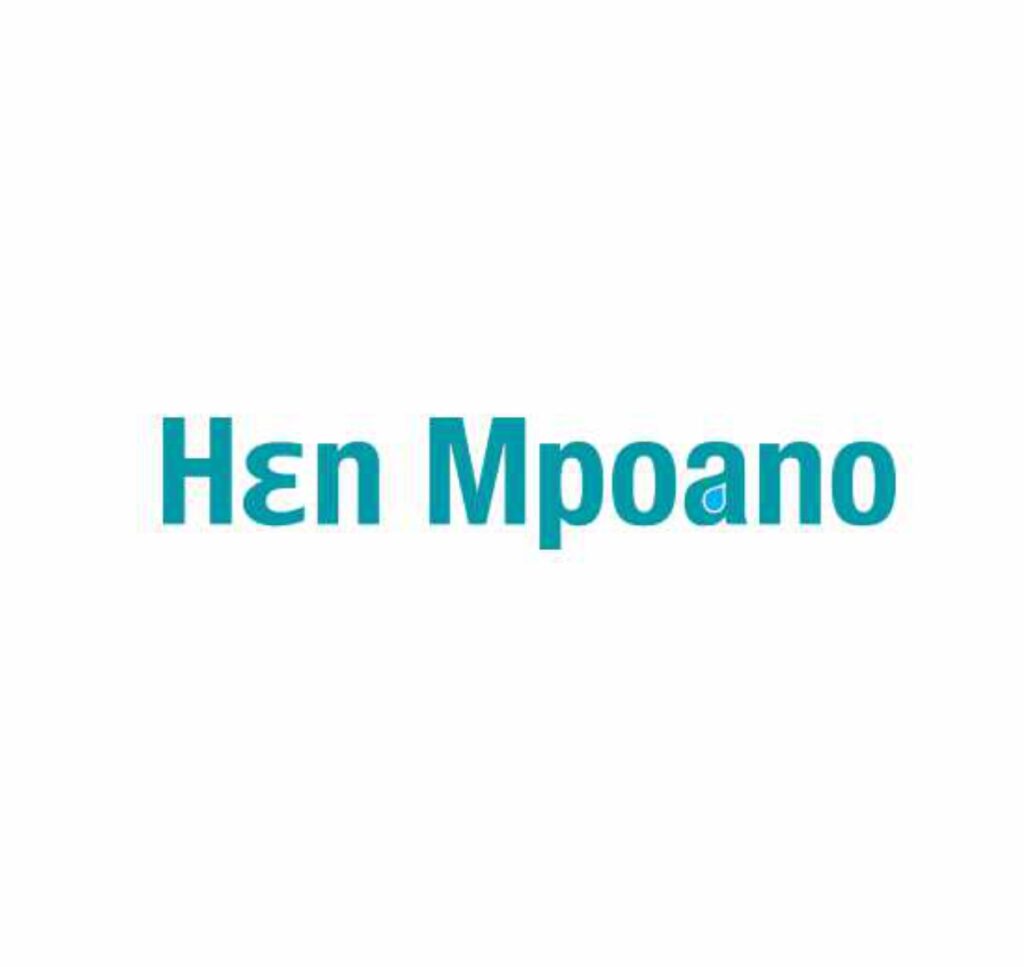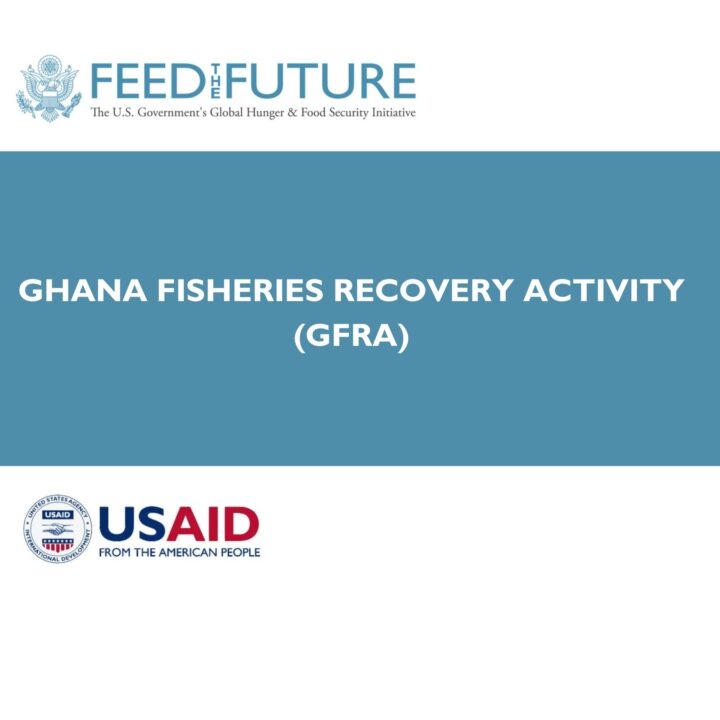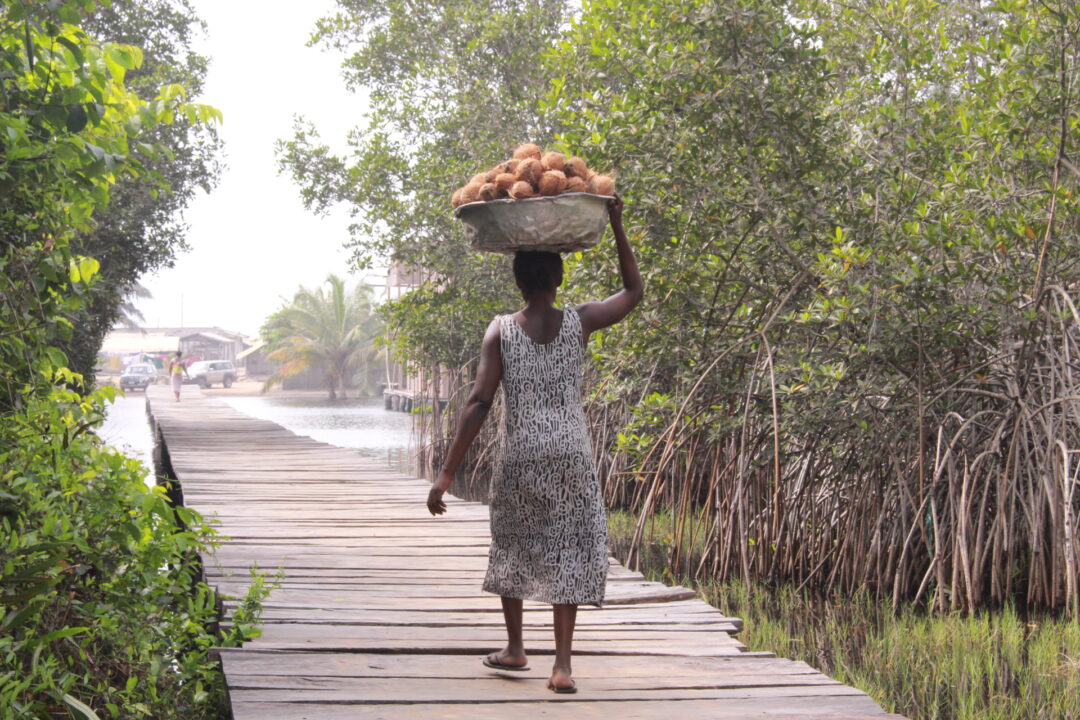Feed the Future-Ghana Fisheries Recovery Activity (GFRA)
Ghana’s small pelagic fishery populations—particularly small pelagic fish stocks of round sardinella (Sardinella aurita), flat sardinella (S. maderensis), European anchovy (Engraulis encrasicolus), and Atlantic chub mackerel (Scomber colias)—are of vital importance for maintaining livelihood and food security for Ghanaian fishers and coastal communities.
Perpetuation of these fisheries is also essential for the long-term integrity of coastal and marine biodiversity, including their role within the wider ocean food web, marine species diversity and community composition, habitat complexity, and genetic diversity. Despite this, Ghana’s fisheries are currently over-harvested through both artisanal and industrial operations.
The Feed the Future Ghana Fisheries Recovery Activity (GFRA) represents an important investment to strategically address and adaptively mitigate these critical threats and their underlying drivers.
Institutional strengthening for accountable, consistent, and fair enforcement and management of small pelagic fisheries coupled with the application of an ecosystem approach to fisheries management (EAFM) provide a strategic opportunity to address the issues and threats facing Ghana’s small pelagic fisheries, setting the foundation for fish population recovery.
GFRA presents a unique opportunity to work collaboratively with Ghana’s government, civil society, and private sector to invest in national and local capacity development to promote fisheries sustainability and advance Ghanaian socioeconomic well-being and community resilience.
The project seeks to achieve this purpose through a balanced and strategic approach that reduces fishing overcapacity and increases controlled access over Ghana’s small pelagic fisheries sector to encourage ecological sustainability while enhancing socio-economic well-being and local resilience of artisanal fisherfolk and their communities.
To do this, an EAFM framework of strategic interventions would be implemented to achieve five interdependent objectives:
Objective 1: Align fisheries capacity with ecological carrying capacity of the small pelagic fisheries while enhancing the socio-economic well-being and resilience of artisanal fisherfolk;
Objective 2: Increase the quality and value of artisanal fish products to maintain household income and enhance availability of nutritious foods for local and regional markets;
Objective 3: Strengthen transparency, accountability, and co-management in governance practices for fisheries policy-making, regulation, and enforcement;
Objective 4: Strengthen constituencies to promote and implement sustainable fisheries management; and
Objective 5: Improve use of science and research for policy and management decisions.
Hen Mpoano has played a pivotal role in advancing the establishment of a proposed Marine Protected Areas (MPAs) within the Greater Cape Three Points Area (GCTPA). In 2023, we led a series of community consultations and local ecological knowledge mapping exercises, supplemented by an in-depth analysis of Geographic Information System (GIS) datasets, to identify and select potential MPA sites. These efforts laid the groundwork for informed decision-making and stakeholder engagement.
Building on this foundation, Hen Mpoano initiated further community consultations to gather stakeholder input and foster local buy-in for MPA establishment and implementation. Our team also facilitated targeted training sessions on MPA and fisheries management for prospective communities within the GCTPA.
In January 2024, we began consolidating education and outreach efforts across 21 prospective MPA communities, focusing on the development of governance structures and co-management arrangements. This includes the structuring and capacity-building of community-based enforcement committees, locally known as Landing Beach Enforcement Committees (LaBECs). These initiatives are being carried out in close collaboration with government officials and aligned with the broader objectives of the GFRA.
The Project is funded by USAID and implemented by Tetratech and Hen Mpoano as main implementing partners.





